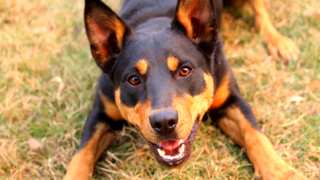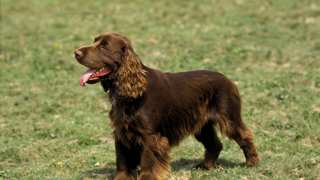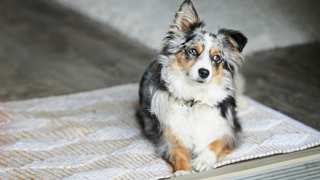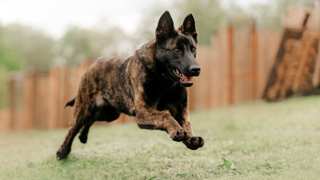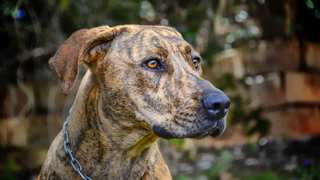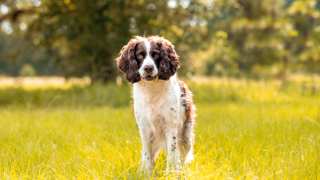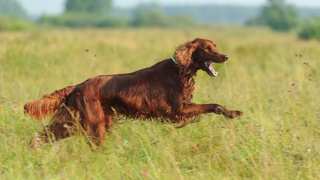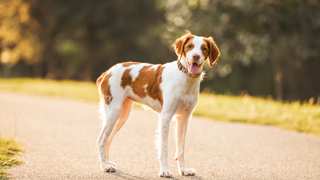The Koolie diet will need to include animal proteins and carbohydrates, vitamins and minerals, and omega fatty acids--nutrients every dog needs to sustain its health in the long term. The best Koolie food, then, is premium dry kibble, as it has balanced portions of the above-listed ingredients.
Koolies do best with food formulated for active breeds. Royal Canin and Dr. Tim's are recommended brands that carry excellent lines of high-energy food.
The typical adult Koolie will need about 3 cups of premium dry food per day, divided into two meals. Koolie puppies will need less: depending on age, about two cups per day, divided into three meals (not two) until six months old.
For more info on feeding a Koolie, see this chart:
Dog AgeDog WeightFood TypeAmountFrequency2 Months5 lbsDry (Puppy formula)0.33 cups3x/day3 Months10 lbsDry0.5 cups3x/day6 Months20 lbsDry0.75 cups3x/day9 Months35 lbsDry* (Puppy/Adult)1.25 cups2x/day12 Months+45 lbsDry (Adult formula)1.5 cups2x/day*--Around this time, transition to adult food by first mixing in a bit of adult formula with the puppy formula. Over the course of a week, with each meal add a little more adult formula to the mixture, until the dog is eating it entirely.
If possible, try and stick to the above-listed portions. If constantly overfed (and under-exercised), these dogs can become overweight--and a fat Koolie will have numerous health problems and a shortened lifespan. You can help control your Koolie's weight by having consistent feeding and exercise schedules, by not feeding the dog table scraps, and by not leaving food in the dog's bowl all the time.
If you're worried your Koolie is overweight, try this test: run a hand along the dog's side, and if you can't feel any ribs, it's diet time--which means less food and more exercise!
